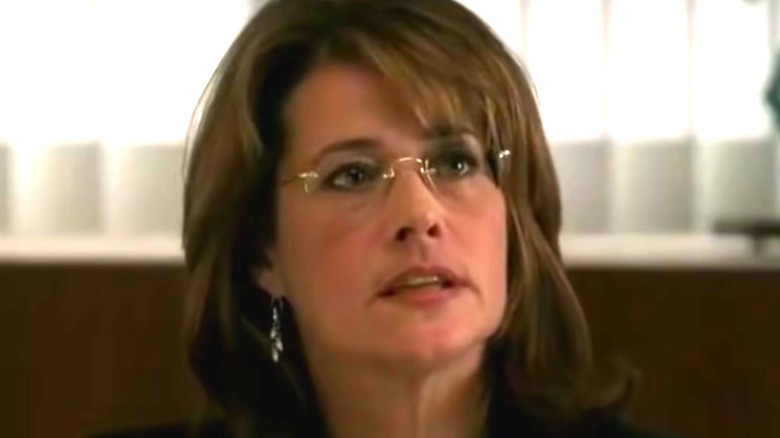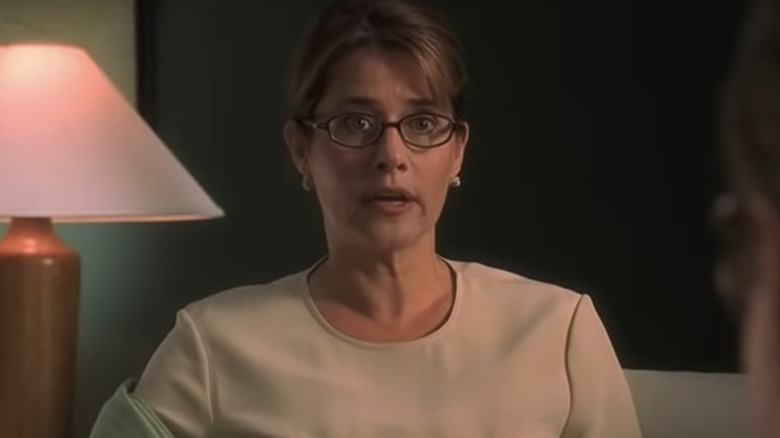The Surprising Inspiration Behind Dr. Melfi On The Sopranos
Throughout the impeccable six seasons of "The Sopranos," the female characters at the heart of the series were often among the show's most consistently impressive elements. Indeed, while many of Tony's biggest battles involved other males, a variety of women regularly impacted TV's most iconic mob boss in a multitude of ways.
From Tony Soprano's mother-from-hell, Livia (Nancy Marchand), to his complicit, but internally complicated, wife, Carmella (Edie Falco), to the numerous women with whom Tony struck up affairs, New Jersey's crime boss, even with all his power, often struggled when women were involved. However, it was Tony's relationship with Dr. Melfi (Lorraine Braco), that undoubtedly became one of the show's most compelling.
The confidant to the head of a criminal organization, Melfi's routinely duplicitous dance around the truth with her terrifying client made for some of the most gripping moments in creator David Chase's multi-award-winning show, right up to its much talked-about finale. A relationship that bubbled with friendship, flirtation, and fear, Melfi was one of the few characters on the show that could tame the savage beast obsessed with ducks. In fact, while she certainly feared him on occasion, Dr. Melfi held such power over Tony that she often felt free to call him out on issues regardless of the potential danger.
Understandably, some people might want to know the origins of such a character. How did David Chase apply such a unique element to a gangster saga? The answer, it seems, was with just a little therapy.
David Chase's own therapist inspired Dr. Melfi
In an interview with Rolling Stone in 2006, during the beginning of the end of "The Sopranos," David Chase revealed that the character of Dr. Melfi was born from meetings with his own therapist, Dr. Lorraine Kaufman. According to Chase, he visited his therapist while stewing on the idea of a mob boss and the two families he had regular trouble with. Chase explained that Melfi had the same traits as Kaufman in that "she had the same way of cutting through your bulls**t."
Notably, it would seem that Kaufman was not only paying close attention to her patient; she was also quite interested in the characters inside his head. In fact, Kaufman's analytical skills were eventually applied directly to the show during its later seasons. Just before the premiere of the final season, Chase revealed that Kaufman actually penned a breakdown of the whole Soprano family and gifted it to him. Funnily enough, Chase even admitted that writers used it on occasion.
According to Chase, Kaufman's estimation of each character was normally pretty accurate. "Strangely enough, these fictional characters have, in fact, behaved in the way she predicted they might," Chase said.
In that case, excellent work, Doctor.

